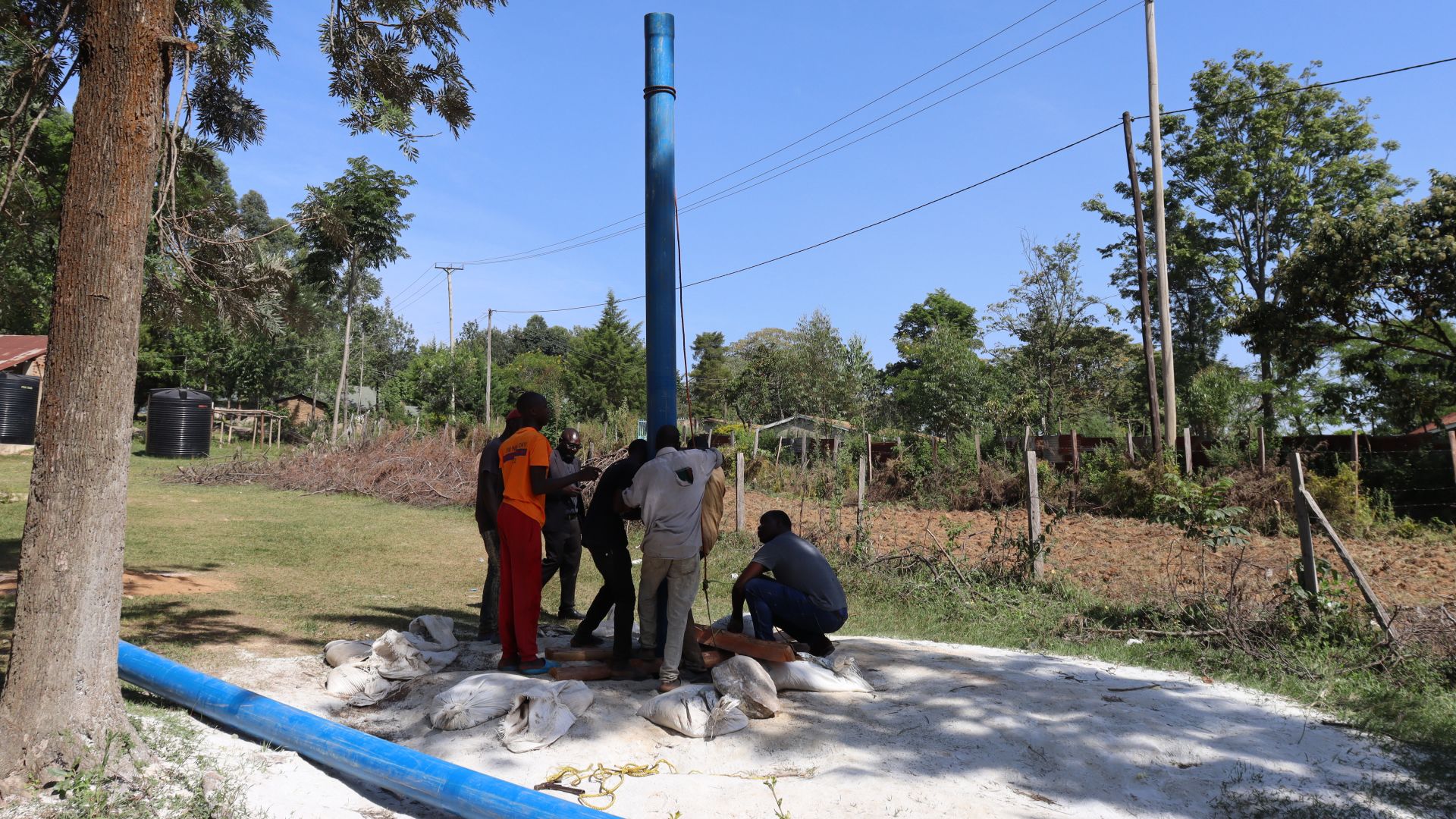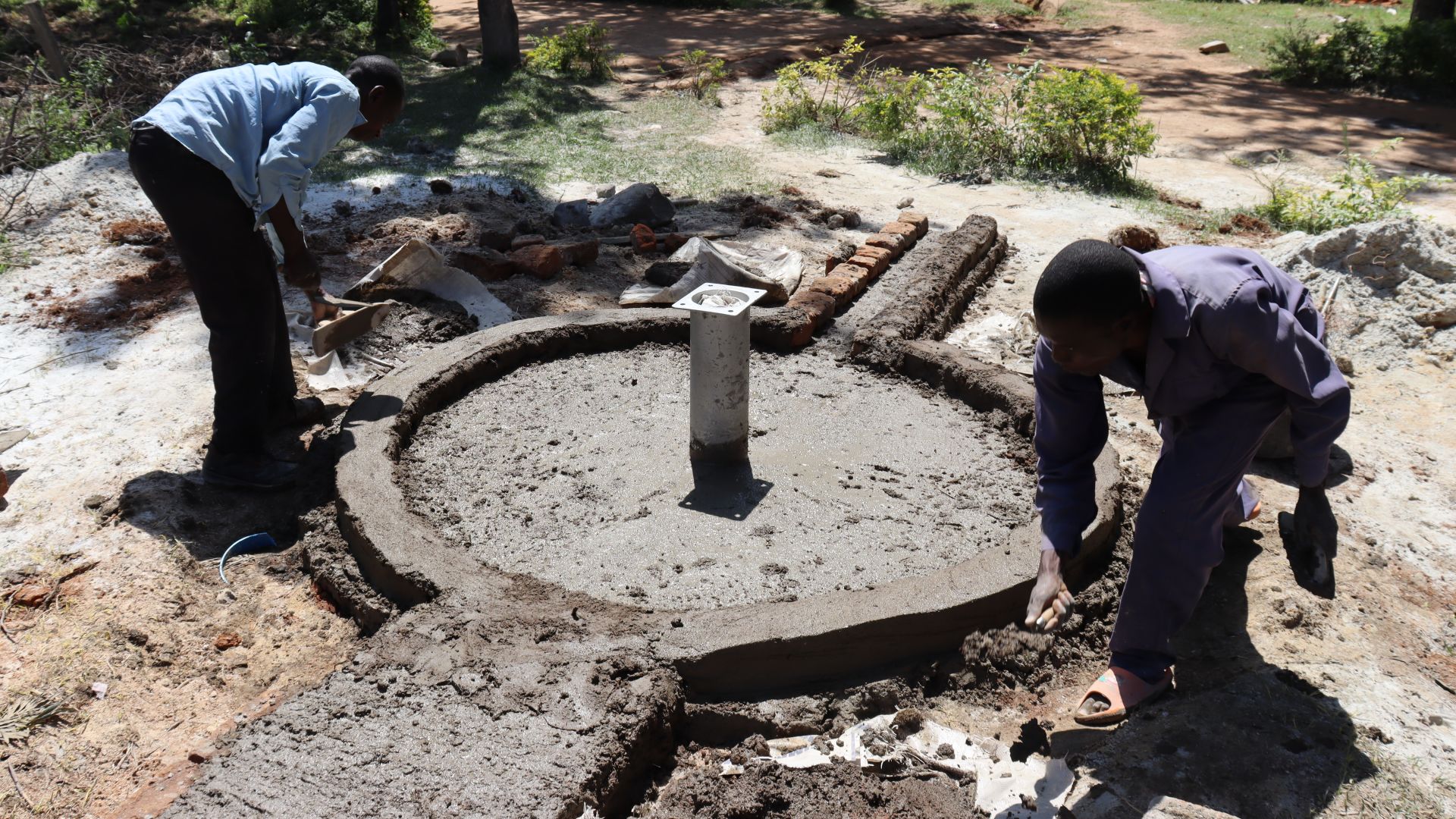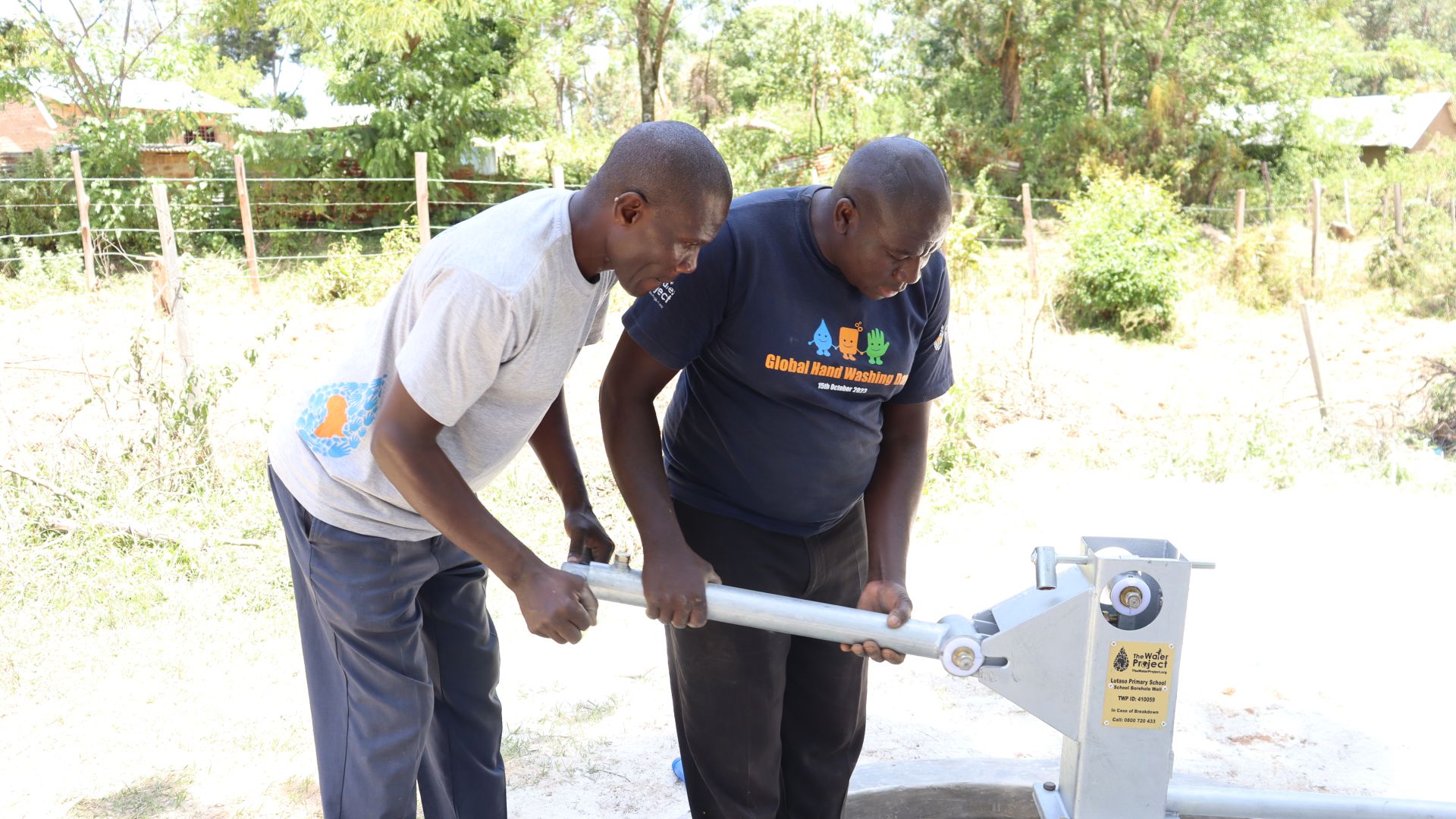The 876 students and 23 staff at Lutaso Primary School struggle every day to have sufficient water to meet their needs. Without water security, instead of everyone focusing on the most important priority of learning, their time and energy are consumed with finding and collecting water and fighting the consequences of drinking dirty water.

The school has three different water sources, but sadly, none of them are reliable, and students and staff risk their health by regularly consuming contaminated water.

"The head teacher said that several pupils, as well as teachers, [have] experienced diarrhea and typhoid, and that both groups experienced stomachaches, hence leading to absenteeism," said Field Officer Joel Shitindo.

The school has a rainwater tank, but it only fills when it rains, and with such a large population, it quickly runs dry. The school also has access to piped water, but it is unreliable, and you never know when water may come. The only other alternative is for students to bring water they collect from various unknown sources.

"As a teacher, I see the importance of water. Maintaining hydration is beneficial for both cognitive and energy levels. I need this to remain focused and awake, especially when teaching and running a classroom for a long time. Getting enough water into my body helps me stay alert and refreshed all day," said 56-year-old Gilbert Nyongesa, the Deputy Headteacher.

"Water shortages affect the pupils' capacity to drink, clean, and wash their hands. Additionally, there are some situations when pupils are burdened with having to carry water from home every morning. Their focus in class is affected, and it is very annoying. Due to a lack of water for menstruation [hygiene], female students are also compelled to return home. A lot of time is wasted as a result of this," Mr. Nyongesa continued.
"Due to insufficient water supply at the school, cooking and cleaning are severely impacted. With the large number of students at the school, this water is also insufficient," Joel continued.

"I got typhoid last week after drinking water from the tank. Therefore, I'm currently on treatment. My stomach problems have caused me to skip a few lessons. Most money is spent on problems relating to water or even on prescription drugs. Considering how much money is spent on medication for both my staff and my students, it is incredibly frustrating. Furthermore, when staff members fall ill, they neglect their responsibilities, which causes a relapse in the class schedule," Mr. Nyongesa concluded.
With clean water access, the Lutaso Primary School students and staff will regain their health and energy. This will revitalize their passion for learning and create an opportunity for a brighter future.
"The school's large population and the surrounding community will benefit from having a borehole drilled in it, hence providing them with dependable and safe water," concluded Field Officer Joel, quoted earlier.
Steps Toward a Solution
Our technical experts worked with the local community to identify the most effective solution to their water crisis. They decided to drill a borehole well, construct a platform for the well, and attach a hand pump.
Well
Abundant water often lies just beneath our feet. Aquifers—natural underground rivers—flow through layers of sediment and rock, offering a constant supply of safe water. A borehole well is drilled deep into the earth to access this naturally filtered and protected water. We penetrate meters, sometimes even hundreds of meters, of soil, silt, rock, and more to reach the water underground. Once found, we construct a platform for the well and attach a hand pump. The community gains a safe, enclosed water source capable of providing approximately five gallons of water per minute. Learn more here!
Handwashing Stations
Alongside each water source, we install two gravity-fed handwashing stations, enabling everyone at the school to wash their hands. Handwashing is crucial for preventing water-related illnesses within the school and community. Student “health clubs” maintain the stations, fill them with water, and supply them with soap, which we often teach them how to make.
Latrines
We will construct two Ventilated Improved Pit (VIP) latrine blocks designed to prevent fecal disease transmission. Each latrine features a cement floor, making it easy to use and clean regularly. Three stalls will serve the girls, and three will serve the boys.
School Education & Ownership
Hygiene and sanitation training are integral to our water projects. Training is tailored to each school's specific needs and includes key topics such as proper water handling, improved hygiene practices, disease transmission prevention, and care of the new water point. To ensure a lasting impact, we support forming a student health club composed of elected student representatives and a teacher. These clubs promote hygiene practices schoolwide and keep handwashing stations well-stocked. This student-led model encourages a sense of ownership and responsibility.
Safe water and improved hygiene habits foster a healthier future for the entire school.

 Borehole Well and Hand Pump
Borehole Well and Hand Pump
 Rehabilitation Project
Rehabilitation Project


































